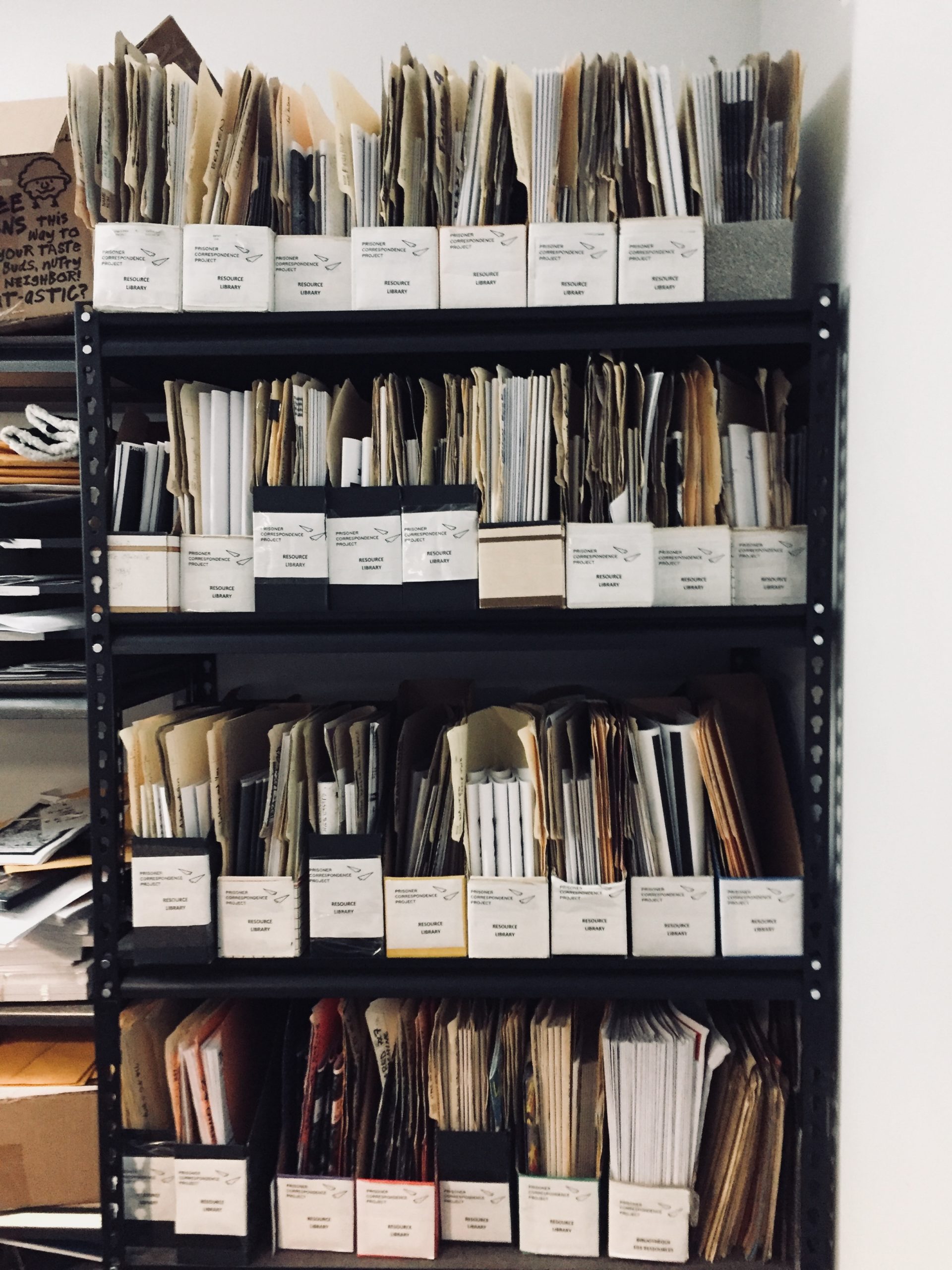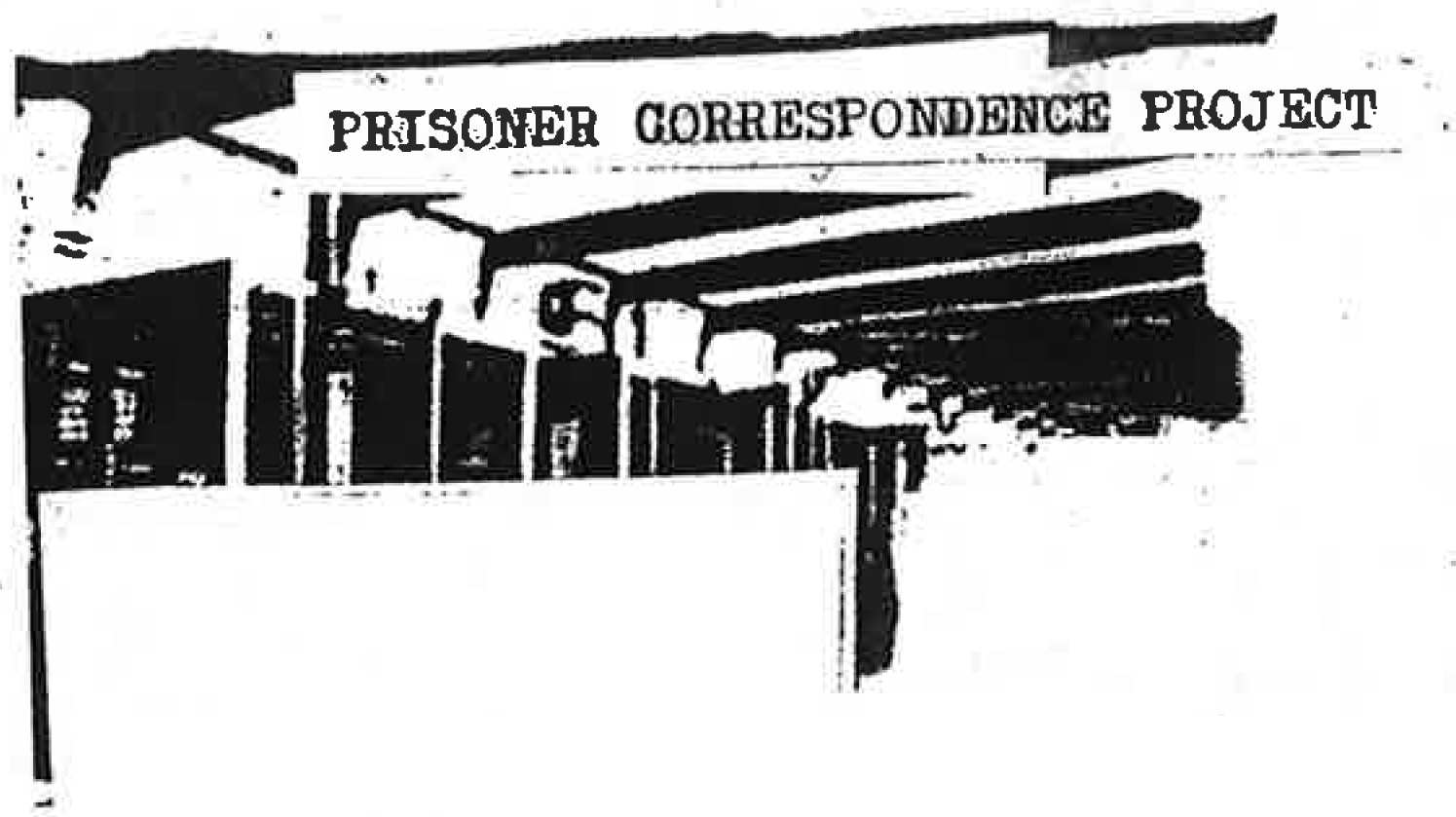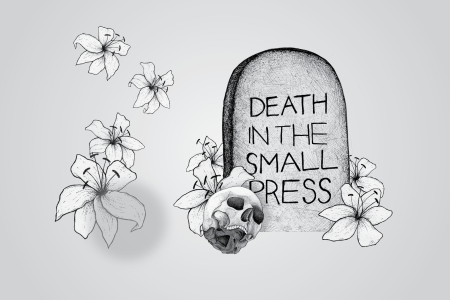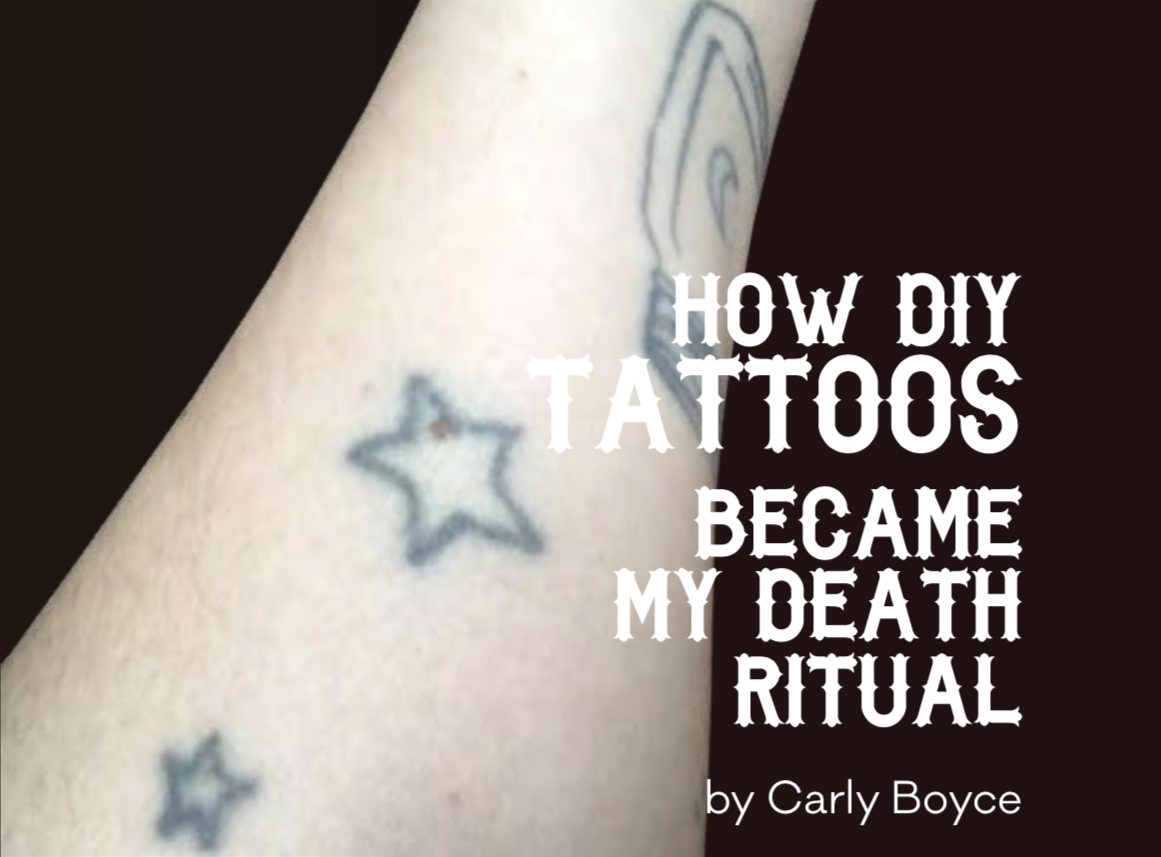The prison system relies on the default assumption that our collective safety hinges on exiling certain people from society and placing them in cages.
At the Prisoner Correspondence Project, we defy that premise.
Far from a reasonable safety measure, we recognize prisons to be sites of violence that further target the most oppressed people—the poor, the racialized, the gender non-conforming. We choose to respond to this harsh truth.
A Montreal-based, volunteer-run solidarity project, PCP connects LGBTQ prisoners across Canada and the United States with members of similar communities on the outside. The project has three main components: coordinating a pen pal program, library of free resources for prisoners, and a biannual newsletter highlighting contributions from prisoners. Founded in 2007, the project has grown to include over 4000 members on the inside. The project promotes alternative ways for people on the outside to relate to those deemed criminal and dangerous by the justice system: seeing them beyond whatever their sentences may be, as fellow members of the LGBTQ+ community.
 We’re sometimes asked why we focus on supporting LGBTQ prisoners, As queer and trans people ourselves, we are well positioned to respond to the specific needs they have. Issues affecting all prisoners — such as sexual and physical violence, medical neglect, and social isolation — are often intensified for queer and trans people. It’s telling that we receive lots of letters from people who aren’t out to anyone else about their sexual or gender identity, in or outside of the institution. Moreover, resources about queer and trans experiences are scarce on the inside.
We’re sometimes asked why we focus on supporting LGBTQ prisoners, As queer and trans people ourselves, we are well positioned to respond to the specific needs they have. Issues affecting all prisoners — such as sexual and physical violence, medical neglect, and social isolation — are often intensified for queer and trans people. It’s telling that we receive lots of letters from people who aren’t out to anyone else about their sexual or gender identity, in or outside of the institution. Moreover, resources about queer and trans experiences are scarce on the inside.
One way we combat these failures is through a mail-based zine library, which is a rotating selection of resources available to prisoners by request, free of charge. The most recent catalog has 142 titles, with many providing information that’s harder to access for members. Topics include living with HIV, DIY tattoos, gay liberation history, and safer sex inside prison (where condoms are rarely accessible).
The most frequently requested category, by far, is smut. This is unsurprising. After all, queer and trans prisoners have few outlets to express or engage their sexualities. Sexually explicit content is highly restricted — again, no surprise — and gets rejected way more frequently than other materials. Thus, we’re careful to follow mailroom policies: we send zines on plain paper, without staples, and we have to censor the imagery by drawing boxes over genitalia and other supposedly explicit body parts. Even so, mailroom practices are unpredictable and arbitrary, and we regularly get our packages returned to us weeks or months later with rejection notices.
Yet zines remain the perfect format for mail distribution into prisons. They’re lightweight, so they don’t cost a lot to send. They’re cheap to reproduce, which is useful when we’re dealing with high mailroom rejection rates. And they’re durable—they tend to have long lives inside prison, where reading materials can be scarce. Our resources circulate for a long time. They’re handed off between prisoners and covertly placed in common areas, waiting to be discreetly discovered by another LGBTQ person who could use it.
Though the library responds to a crucial need, assembling packages is time consuming. We’re always behind in filling requests. Right now, we have a backlog of six months. This has always been the case for us. Our small group of volunteers responds to a huge volume of mail, to the tune of 100 new letters per week, on average. Somehow, we mostly keep afloat, but we often wonder how long this project can last before collapsing from lack of funds or lack of capacity.
 One vision we have for a more sustainable organization is to match up more participants with outside volunteer penpals, who can take on some of the individualized tasks currently sustained by our small group (such as fulfilling resource requests).
One vision we have for a more sustainable organization is to match up more participants with outside volunteer penpals, who can take on some of the individualized tasks currently sustained by our small group (such as fulfilling resource requests).
Could this include you? Folks drawn to zines, letter writing, new friends, and mutual support invited to join in. We have over 2400 incarcerated queers waiting for a penpal, with a five year waitlist. The work is edifying, practical, and beyond needed. If you’re interested in getting involved, would like to donate, or just want to know more about the project, don’t hesitate. Visit our website at prisonercorrespondenceproject.com and get in touch. bp


